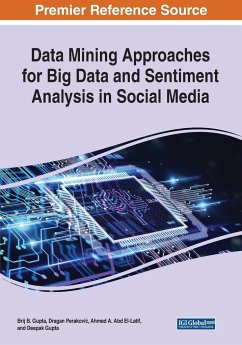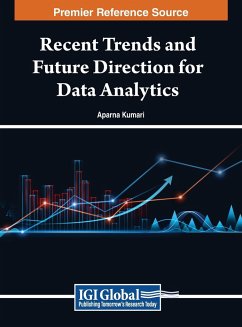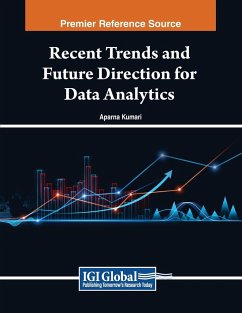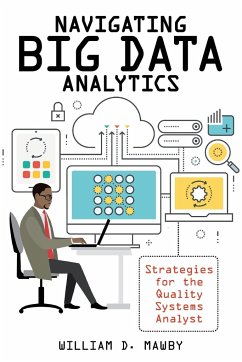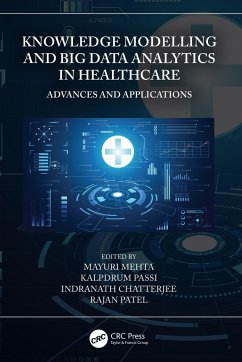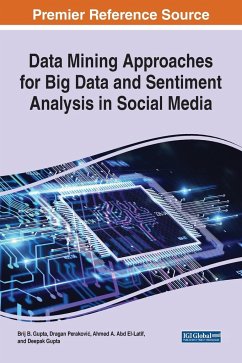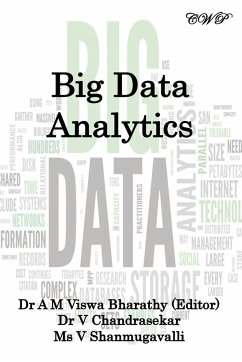
Privacy Protection in Big Data Analytics
Versandkostenfrei!
Versandfertig in 1-2 Wochen
35,99 €
inkl. MwSt.

PAYBACK Punkte
18 °P sammeln!
Privacy protection in big data analytics refers to the process of safeguarding the privacy and confidentiality of sensitive information in large datasets, while still allowing for the extraction of valuable insights and patterns from the data. Big data analytics involves the use of advanced algorithms and technologies to analyze vast amounts of data, often containing personal or sensitive information, to gain insights and make informed decisions. However, as more and more data is collected and analyzed, there is an increasing risk of privacy breaches and data misuse. To address this challenge,...
Privacy protection in big data analytics refers to the process of safeguarding the privacy and confidentiality of sensitive information in large datasets, while still allowing for the extraction of valuable insights and patterns from the data. Big data analytics involves the use of advanced algorithms and technologies to analyze vast amounts of data, often containing personal or sensitive information, to gain insights and make informed decisions. However, as more and more data is collected and analyzed, there is an increasing risk of privacy breaches and data misuse. To address this challenge, privacy protection techniques such as data anonymization, encryption, and access controls are used to ensure that sensitive information is protected from unauthorized access or disclosure. Data anonymization involves the removal or modification of personally identifiable information (PII) from the dataset, while still retaining its usefulness for analysis. Encryption involves encoding the data in a way that can only be deciphered with a key, ensuring that only authorized users can access it. Access controls restrict access to the data to only those who need it for legitimate purposes. Privacy protection in big data analytics is crucial for maintaining trust between data owners and users, protecting individual privacy rights, and complying with regulatory requirements







